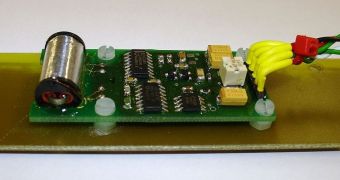Scientists at the University of Leeds, in the United Kingdom, are hopeful that a new device they are working on will increase the early correct diagnostic rates of heart conditions in the near future. The machine, a portable heart magnetometer, is being developed with funding provided by the Engineering and Physical Sciences Research Council (EPSRC), and is widely believed to be the first of a new breed of diagnostics equipments to revolutionize medicine.
The new instrument will work especially well for infants, producing more accurate and early diagnostics than currently possible with ultrasound, ECG (electrocardiogram), and existing heart magnetometers. It will feature an unprecedented sensitivity to magnetic fluctuations, which represent its basic functioning principle. The machine will also be a lot smaller than the cumbersome medical equipment of today, which means that experts will be able to carry it in remote, difficult-to-access places. Price-wise, it will be a lot cheaper than any device on the market today. All of these elements make a good recipe for innovation, the Leeds team believes.
“The new system gets round previous difficulties by putting the actual detector in its own magnetic shield. The sensor placed over the area being examined lives outside the shielded area and transmits signals into the detector. The sensor head is made up of a series of coils that cancel out unwanted signals and amplifies the signals that are needed. So the tiny magnetic fields produced by a person's heart can be transmitted into the heavily shielded environment. What we've been able to do is combine existing technology from the areas of atomic physics and medical physics in a completely unique way,” UL Professor Ben Varcoe, the leader of the scientific effort, explains.
“Early detection of heart conditions improves the prospects for successful treatment. This system will also quickly identify people who need immediate treatment. But our device won't just benefit patients – it will also help ease the strain on healthcare resources and hospital waiting lists,” Varcoe adds. The new device is expected to be especially suited for detecting ischaemia, the condition in which regions of the body receive insufficient blood flow on account of blockages along veins and arteries. But, most importantly, the device could also be adapted for use on the human brain as well, the team concludes.

 14 DAY TRIAL //
14 DAY TRIAL //